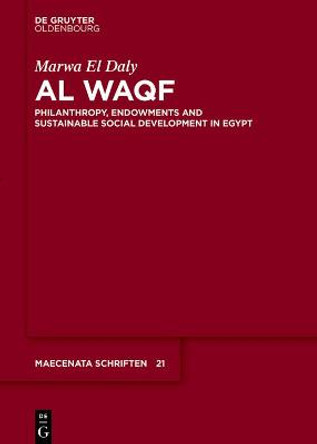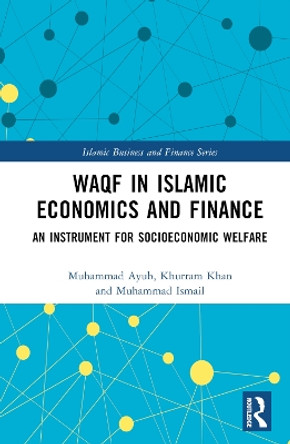Description
The authors explore the relationship between the roles Waqf plays in realizing the SDGs, its contributions in many sectors of the economy, and the Waqf practices among the Southeast Asia countries, particularly Malaysia. They highlight the existing Waqf models and framework that have been used by many countries for entrepreneurship that can be used or adapted for the benefits of SMEs.
This book is a comprehensive overview for academics, postgraduate students, entrepreneurs, and policy makers who wish to understand how Waqf can contribute to the economic progress of individuals and society at large.
About the Author
Shafinar Ismail, Professor of Finance, Faculty of Business and Management, Universiti Teknologi MARA Melaka, Bandaraya Melaka, Malaysia, M. Kabir Hassan, Professor of Finance, Department of Economics and Finance, University of New Orleans, US and Suharni Rahmat, PhD, Faculty of Technology Management and Technopreneurship, Universiti Teknikal Malaysia Melaka, Malaysia
Reviews
'The merits of Waqf Islamic endowments have been rediscovered in recent years and they are now found world-wide wherever there are Muslim communities. It is the adaptability of Waqf, including the ability to change the share of benefactors, which has encouraged many to become founders. Of particular interest is the experience of Southeast Asia, a focus of this book, from which lessons can be learnt.' -- Rodney Wilson, Durham University, UK
'The authors provide a comprehensive overview of the importance of Waqf financing to MSEs. In a post COVID-19 world, a wide array of economic solutions is needed to support entrepreneurs as economies recover from the devastating global pandemic. Situating this need within the global economy, the authors provide case examples from Malaysia and Indonesia, primarily, to support their argument. A very compelling and important look into ways socially conscious financial options can build back stronger economies.' -- Karen Hunt Ahmed, Nashville International Academy, US
'Being one of the "purest" Islamic Finance branches, Waqf indeed could contribute enormously to achieving SDGs, such as eliminating poverty, reducing income inequality and other goals. In this book, Waqf, or to be exact contemporary Waqf, in the dynamic global scene, is presented in an interesting and clear way. The book demonstrates how it is able to help SMEs to not only grow and be sustainable, but also contribute to the economic growth of the nation, and strengthening of the society.' -- Baharom Abdul Hamid, INCEIF University, Malaysia
'I highly recommend this book to academicians, practitioners, and policymakers to shape the post-pandemic landscape of Waqf and SMEs. The fascinating about this book is the way the authors present waqf roles in different sectors such as agriculture, education, tourism etc. and synthesizing it with capital market instruments such as REITS and stocks, promoting social development and sustainability.' -- Raditya Sukmana, Universitas Airlangga, Indonesia
Book Information
ISBN 9781803929798
Author Shafinar Ismail
Format Hardback
Page Count 172
Imprint Edward Elgar Publishing Ltd
Publisher Edward Elgar Publishing Ltd







